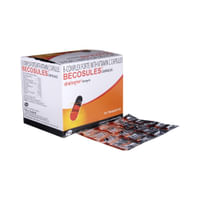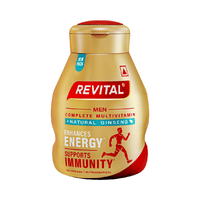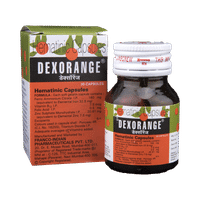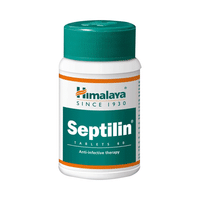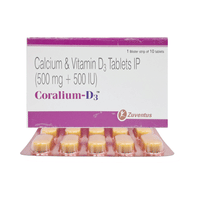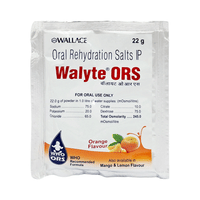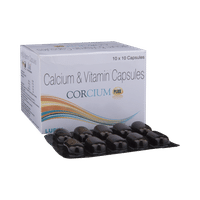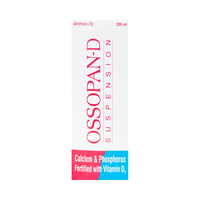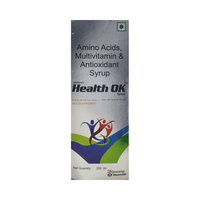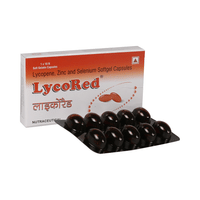Rs.14.60for 1 vial(s) (2 ml Injection each)
Composition FOR Nervic-Plus
Methylcobalamin(500mcg),Niacinamide(50mg),Vitamin C(100mg),Vitamin E(25mg)food interaction for Nervic-Plus
alcohol interaction for Nervic-Plus
pregnancy interaction for Nervic-Plus
lactation interaction for Nervic-Plus
food
alcohol
pregnancy
lactation
No interaction found/established
Caution is advised when consuming alcohol with Nervic-Plus Injection. Please consult your doctor.
CAUTION
Information regarding the use of Nervic-Plus Injection during pregnancy is not available. Please consult your doctor.
CONSULT YOUR DOCTOR
Nervic-Plus Injection is safe to use during breastfeeding. Human studies suggest that the drug does not pass into the breastmilk in a significant amount and is not harmful to the baby.
SAFE IF PRESCRIBED
SALT INFORMATION FOR Nervic-Plus
Methylcobalamin(500mcg)
Uses
Methylcobalamin is used in vitamin B12 deficiency.
How it works
Methylcobalamin is a form of vitamin B12 that restores its level in the body thereby helping in treating certain anemias and nerve problems.
Common side effects
Decreased appetite, Diarrhea, Nausea, Rash
Niacinamide(50mg)
Uses
Niacinamide is used in the treatment of nutritional deficiencies.
How it works
Niacinamide provides essential nutrients.
Common side effects
Nausea, Portal vein fibrosis, Blockade of portal blood vessels, Dry hair, Headache, Heartburn, Hepatobiliary disorder, Liver toxicity, Sore throat, Stiffness of face, Disorientation (alteration of mental status), Fatigue
Vitamin C(100mg)
Uses
Vitamin C is used in the treatment of nutritional deficiencies.
How it works
Vitamin C is a vitamin that provides essential nutrients.
Common side effects
No common side effects seen
Vitamin E(25mg)
Uses
Vitamin E is used in the treatment of Vitamin E deficiency.
How it works
Vitamin E contains vitamin E that acts as an antioxidant. It stops the formation of harmful chemicals called free radicals and prevents further production as well as accumulation of free radicals.
Common side effects
Nausea, Tiredness, Headache, Rash
SUBSTITUTES FOR Nervic-Plus
No substitutes foundExpert advice FOR Nervic-Plus
- Methylcobalamin helps replenish vitamin B12 level in your body.
- This further helps in regeneration of damaged nerves in the body.
- Avoid or limit alcohol consumption while taking this medication.
- Inform your doctor if you are pregnant, planning to conceive or breastfeeding.
- Do not stop taking the medication even if your symptoms improve. Take it as per the dose and duration prescribed by your doctor.
Frequently asked questions FOR Nervic-Plus
Methylcobalamin
Q. What is Methylcobalamin?
Methylcobalamin contains vitamin B12. Vitamin B12 is an essential nutrient which is required by the body to make red blood cells and maintain a healthy nervous system. It is also important for releasing energy from food and using vitamin B11 (folic acid).
Q. Why can’t I get sufficient vitamin B12 from my diet?
You can get vitamin B12 from sources like meat, fish, eggs and dairy products. While people who are vegetarian or vegan may not get Vitamin B12 as it is not found naturally in foods such as fruits, vegetables and grains. Therefore, deficiency of Vitamin B12 is usually noticed in vegetarians or vegans.
Q. What happens if I have vitamin B12 deficiency?
Deficiency of vitamin B12 may cause tiredness, weakness, constipation, loss of appetite, weight loss and megaloblastic anemia (a condition when red blood cells become larger in size than normal). It may also lead to nerve problems such as numbness and tingling in the hands and feet. Other symptoms of vitamin B12 deficiency may include problems with balance, depression, confusion, dementia, poor memory and soreness of the mouth or tongue.
Niacinamide
Q. What is Niacinamide? What is it used for?
Niacinamide is a medicine used in the treatment of conditions caused due to low levels of vitamin B3 in the body. It reduces the cholesterol levels to normal. It also helps in the treatment of symptoms like loss of appetite, weakness, diarrhea, skin inflammation and mental changes.
Q. Is Niacinamide effective?
Niacinamide is effective if used in the dose and duration advised by your doctor. Do not stop taking it even if you see improvement in your condition. If you stop using Niacinamide too early, the symptoms may return or worsen.
Q. How should Niacinamide be taken?
Niacinamide should be taken in the dose and duration advised by your doctor. It can be taken with or without food. However, it is advised to take it at the same time each day to avoid the chances of missing a dose.
Vitamin C
Q. What is Vitamin C?
Vitamin C consists of a water-soluble vitamin known as vitamin C. Vitamin C is also known as L-ascorbic acid or ascorbate. It cannot be stored for long in our body as it is water soluble. Therefore, it should be taken from food like tomatoes and citrus fruits like oranges to maintain sufficient levels of vitamin C in the body.
Q. Is Vitamin C necessary?
Vitamin C is used if your diet does not provide enough vitamin C. It can also be used to treat certain conditions caused due to low levels of vitamin C in the body. However, it would be best to consult your doctor before taking Vitamin C to get maximum benefit.
Q. Why is it important to take vitamin C in your diet?
Vitamin C has many beneficial properties. Vitamin C helps in the growth and repair of tissues of bones, cartilage, tendons, skin, hair, muscles and many more. Along with that, it helps in wound healing and also enhances absorption of iron in our body. Excess of free radicals can speed up the ageing process, vitamin C due to its rich antioxidant properties help to reduce the harmful effects of these free radicals. Vitamin C is very crucial for bone and teeth health. It improves vision and also regulates the blood cholesterol levels. Owing to its numerous benefits, it is very important to take an adequate amount of vitamin C in your diet.
Vitamin E
Q. Is Vitamin E good for skin?
Yes. Vitamin E is very good for the skin. It protects against harmful ultraviolet rays, prevents any sunburns or tanning, nourishes skin with essential antioxidants and combats ageing. Its antioxidant effects destroy any harmful toxins, moisturise your skin and make your skin smooth and healthy. It will also prevent fine lines, wrinkles and other signs of ageing. This improves your appearance and boosts your self-confidence too.
Q. What foods contain vitamin E naturally?
There are many food items that contain vitamin E naturally. They are vegetable oils (such as wheat germ, sunflower, safflower, corn, and soybean oils), nuts (such as almonds, peanuts, walnut, and hazelnut), green leafy vegetables (such as spinach and broccoli), cereals, fruit juices etc. Taking such foods in your daily diet will help you get more vitamin E and improve your overall health.
Q. Does Vitamin E improve immunity?
Yes. Vitamin E helps improve immunity. It strengthens your immune system, and increases your ability to fight infections. The antioxidants that are present in Vitamin E, prevent any harmful toxins from damaging the various organs in our body.













